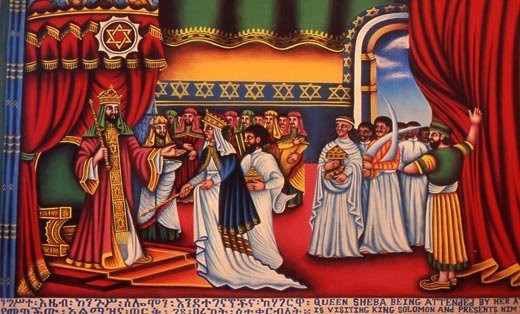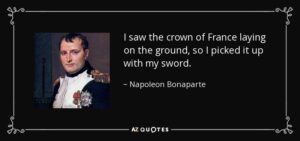People of the Cross
Queen Candace sent her homeboy on a mission. No, I’m not talking about Candace Owens convincing Ye to buy Parler. Although the presence of a ‘Candace’ in this narrative is striking, considering her namesake. I’m talking about Queen Candace of the Ethiopians in the book of Acts (chapter 8), and her role in the history of Christianity, way back in the Apostolic world before Gentile conversion to the faith, when the early Church was still very Israelite. Israelite identity is a touchy subject in the Vending Machine, like anything else concerning race and religion we are all scared to “say the wrong think out loud” and make statements that offend self-appointed thought referees. It’s an exhausting game, being a Westerner. East Africans have a much more liberated existence in this realm of life. God is present in the everyday in public, not relegated to the weekend or digital chat rooms. Religious piety is celebrated and not shamed. And the memory of the African contribution to the “Abrahamic religions” is alive. This week it is apparently the time for this to happen in the Vending Machine. Except nobody wants to, because we’re told the Vending Machine will expel us if we shake things up too much.
Kanye West has decided a simple shaking isn’t enough and has infamously declared “DeathCon”. I’m not going to analyse this declaration (because everybody else is already doing it), I’m far more interested in Ye’s assertion that he is a “Black Jew”, which has been totally ignored by the media except to say that this must be connected to the influence of the Black Hebrew Israelite cult. Everybody inside the Vending Machine is in a frenzy because he said, “Black Jew”. The dissident pundits say that Kanye has been drinking delusional soda pop cult ideology, and then left the analysis flat. But I see a different part of the story happening. I see an American slowly waking up to Coptic historical reality inside the Vending Machine that forgot about the Black Hebrews of the Bible.
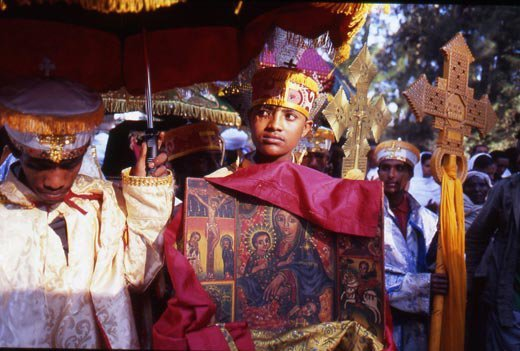
I know, it sounds like I’ve overdosed on reggae. Absolutely guilty as charged. I dosed on it enough to hear the Caribbean Christian minstrels singing about Zion and the Solomonic Dynasty of Ethiopia, and I followed the trail all the way to the Ark of the Covenant in Axum. That Ark is the Mosaic Ark, the gold-covered acacia chest containing: Moses’ tablets of 10 Commandments, the budded almond rod of Aaron, and the manna from heaven – which, in all of Christendom only the Ethiopian Copts claim to possess. Whether you think it’s true or not, no other country on earth has so obsessively celebrated possession of this Old Testament relic; it is impossible to be around Ethiopians and not learn about the Ark coming to their mountainous nation of Africa from Jerusalem. But the Ethiopian Copts place even more value on another ark: Mary, the Virgin Mother of Christ, the New Ark of Israel.
It seems esoteric when you haven’t grown up surrounded by pictures of the Virgin Mary. But that’s what iconoclasm (or sacred image destruction) has done to Westerners: obliterated civilizational memory and the ability to refer to the imagery of the Early Church. Copts never committed iconoclasm. Sacred imagery has been a key to preserving the faith in the ‘Nile section of Ghetto Christendom’. We Copts were an obscure ancient “Christian sect” removed from the West for over a thousand years, and largely forgotten by the rest of Christendom, but Coptic imagery has influenced the sacred art of the entire Mediterranean region since the beginning of the Church, although many Christians will not recognize the Coptic influences in their art.
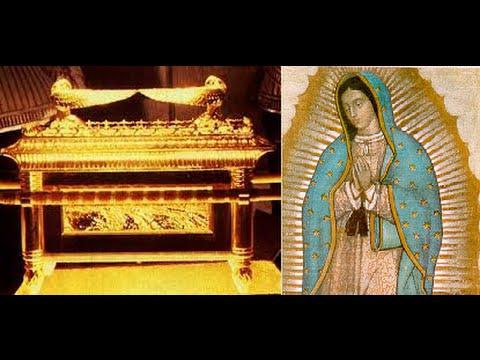
Meanwhile over in North America, Black Americans have wielded the Coptic Ankh (or Crux Ansata) in a quest to assert an ethnic identity rooted in African spirituality (here for example), and the Coptic theme has repeated itself over the decades in various cults and sects. As my Church has been established by the people of the Ankh (which was ‘baptized’ as a Christian symbol after Egypt’s conversion to Christianity), I have followed the pop culture use of the Ankh symbol with interest. Because, for all of the desire to return to indigenous African spirituality, including a “Black Hebrew” identity, there has never been a major mainstream conversion of African Americans to an indigenous African, Coptic Christianity. It’s mystifying.
In the 20th Century, Black Americans looked to the Coptic people of Imperial Ethiopia as icons of the struggle against colonialism and European imperial conquest of the African Continent. Many Americans protested the Fascist Italian invasion of Abyssinia in huge numbers, and decades later the imperial Ethiopian delegation to the White House was greeted by streets full of Americans who had come to see the Coptic African Emperor. And yet who were these Abyssinians being greeted by the JFK administration? If you ask them, they say they are Black Hebrews who accepted the faith of the Apostles AKA the African Israelites.
Western Protestantism doesn’t focus on this chapter in the history of Christianity nearly enough. It instead repeats the delusion that Christianity first entered Africa through the European colonial system and that it was imposed on subject people in a racist imposition of European spirituality. This is false. Christianity claimed an entire native kingdom in Africa before it had even reached Russia. Yet the lie that African Christians are practising a “White Man’s religion” is promulgated, even by the people who are angry about the Anti-White racism of Critical Race Theory. How much of this corrosive guilt of the American Europeans has been created by this delusion and ignorance?
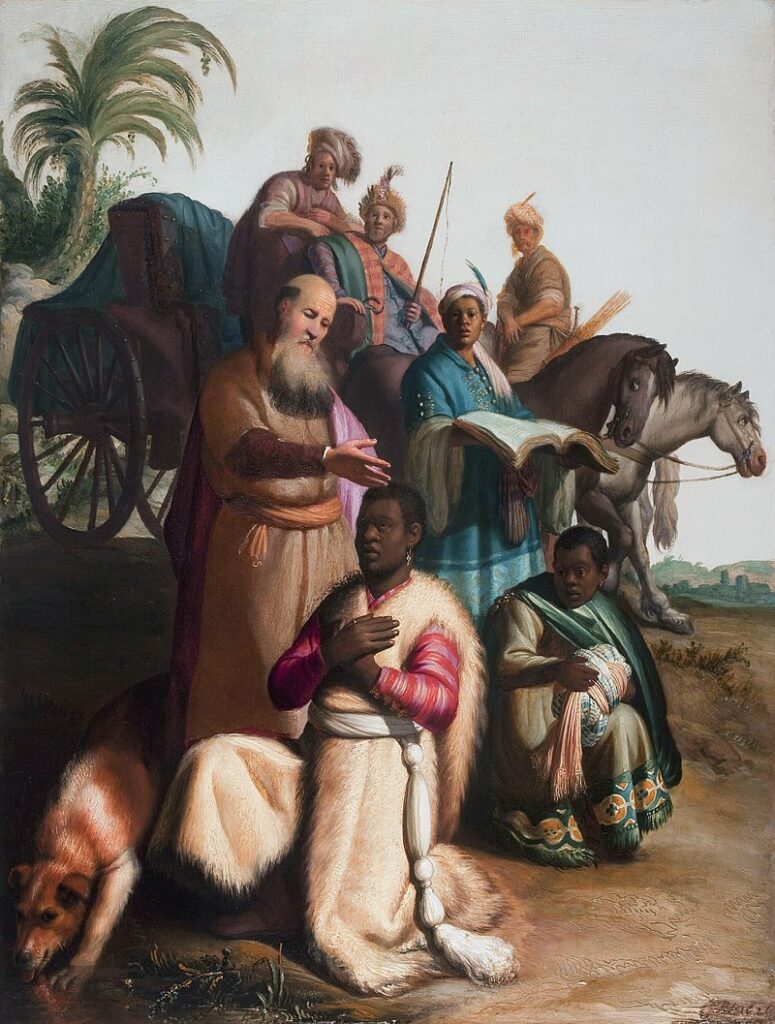
The Islamic world to contrast White Guilt has no crisis of conscience at all over its history of slave trading, nor its colonial relationship with Africa. On the contrary, Muslims embedded the story of Mohammad’s followers fleeing Arabia for the protection of the Christian Ethiopian King in the story known as the hijrah (emigration). The Arabians took refuge in Coptic Africa to find the protection of An-Najashi (the King of Ethiopia) at the direction of Mohammad who recognized their monastic piety. Without this part of their story, Muslims wouldn’t exist. The Christian Horn of Africa is likely where they learned to pray in prostration after their delegation gave their account of the Muslim attitude towards the Virgin Mary to the Najash (king). The expression of respect toward the Virgin Mary in Ethiopia was the reason that the emerging community was given refuge by the Copts.
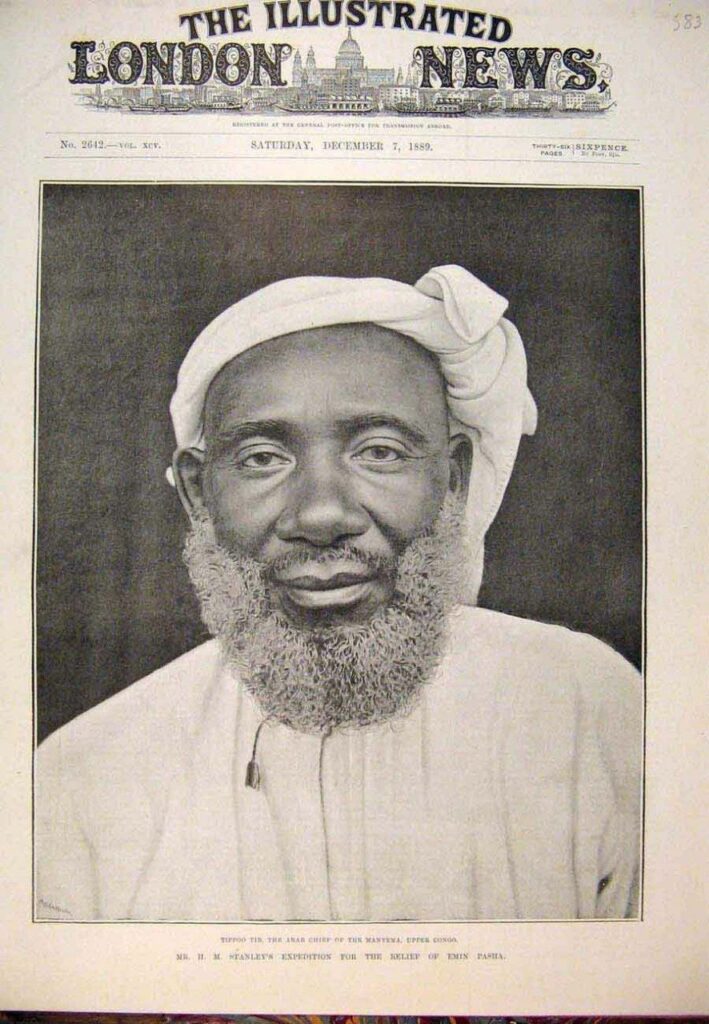
Happy Black History Month!
Why don’t Western Christians know this history? European Christians of the New World seem to have no memory of the Hebrew Christians of the Nile in their own origin story. Yet the Apostles clearly did; they wove it into the narrative of the New Testament.
Enter Candace (the African, not the American one). Before Mohammad’s followers turned to the Christian Kingdom of Axum for refuge, the Nile region was ruled by various monarchs. Among these was the one called “Queen Candace of the Ethiopians” in Acts 8. Candace is an official term taken from the kandake or queens of the Kushite peoples. Among these Kushitic peoples are the nations that have emerged along the Nile and Horn of Africa, and within these nations were Black Israelites. Check for yourself. Why else would the Apostles mythologically crystalize the memory of the Evangelist Philip meeting Queen Candace’s Hebrew eunuch travelling on the road to Jerusalem in the Book of Acts 8?
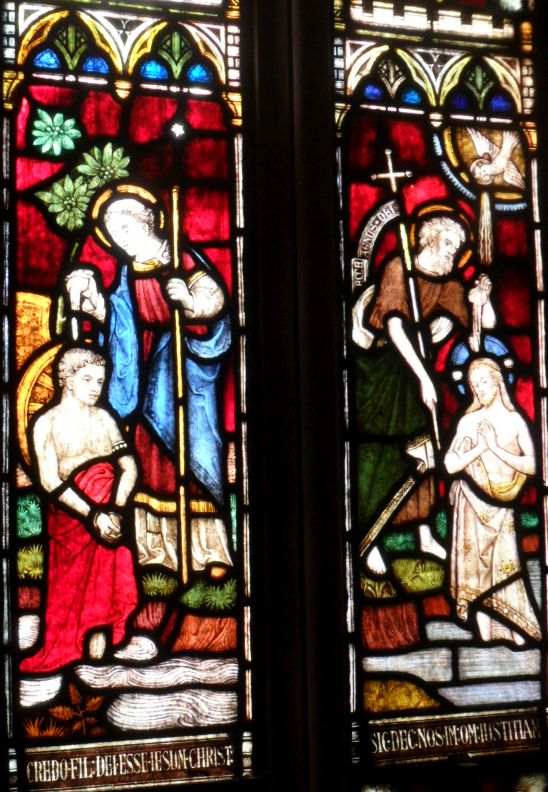
The Evangelist Philip never cringed at the eunuch reading Isaiah and accused him of LARPing: he immediately saw a brother of the circumcision and preached Christ. And the Greek Philip recognized that this African man was seeking the Messiah promised to Israel, although he did not know the interpretation of the scriptures until Philip explained to him that Jesus Christ is the Consolation of Israel. Once learning this, Candace’s Black Jew was baptized immediately, and took the news and Gospel with him down to Africa, where other Black Hebrews adopted Christianity. This part of Church history is precious to the Ethiopians and has been burned into the memory of the Coptic world, as the faith of Christ first bloomed along the Nile. Yet it is nowhere in the West. The moment you say anything that sounds like Black Hebrew Israelites, people recall the American cult. It is curious.
African Apostolic history is a key part of the controversy with Kanye West now. Because like West, the West is having an identity crisis worse than Bruce Jenner’s. Ye is trending and proclaiming an identity that makes people very uncomfortable to consider, an identity that doesn’t fit the appointed label of his Vending Machine persona. Bruce Jenner won woman of the year and was applauded for his bravery. Westerners are apparently encouraged to identify as whatever they want now and celebrate their label transfers on magazine covers. What has Kanye done if not replace his label with another?
In a world where we are encouraged to adopt whatever identity we want without shame (except for being Christlike), Kanye’s “Black Jew” assertion is a great sin in pop culture. But who gets to decide Israelite identity? Who is more authoritative than the Hebrew Apostles of the New Testament, the Bible itself? Do Americans have this monopoly on the label or do the Copts, who recognize the African Hebrew presence as real? Are Western Christians even allowed to have this conversation, or are they only supposed to apologize into eternity for bringing Christianity to dark-skinned people, despite the reality that it was the native Ethiopians and Egyptians who established Christianity along the Nile? People of the Cross, who would be seen in America as People of Color. The Ankh belongs to Jesus Christ.
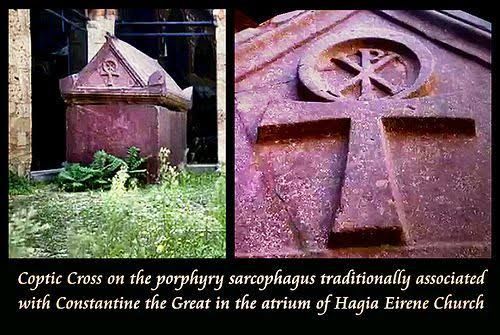
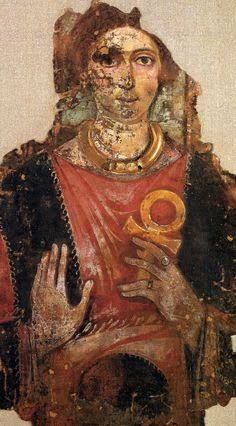
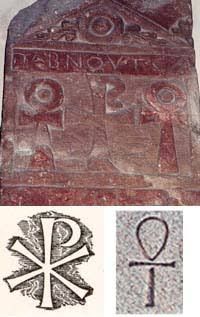
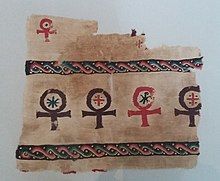
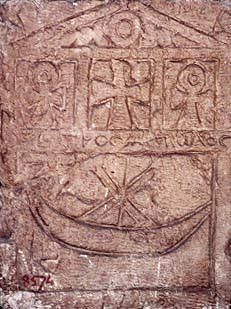
As a POC (person of the Cross) I see no problem with anybody saying Black Hebrew. Copts never forgot about them, and the American West seems to be on the cusp of recalling a Biblical event that transformed the history of the Apostolic Church forever: the baptism of the Ethiopian Hebrew by the Evangelist Philip, in fulfillment of the expectation of the old Mosaic Covenant. We Copts hold to the reality, as Simeon did in Luke 2:25-32, that Christ is the Glory of Israel who brings revelation to the Gentiles. The Incarnation of the Lord through the Virgin Mary marked the beginning of New Israel.
So, do you see Kanye as a kind of Black Hebrew Israelite LARPing as a “Darker Jew”? Or do you see somebody who read the Book of Acts, took it seriously and saw himself in that Black Hebrew eunuch searching for the Messiah? What would the Evangelist Philip say to Candace’s homeboy today? Perhaps Western Christians will now finally realize this part of the ancient Christian story and remember that the road to Jerusalem was once travelled by African Hebrews searching for the Messiah, who is Jesus Christ. Maybe Ye will do what Queen Candace’s eunuch did and recognize the Ark of the New Covenant, the Virgin Mary who gave birth to the Glory of Israel, Immanuel. Time will tell.

Anti-conservative but definitely not anti-christ, Kilts is a Medieval thinker, poet, concept artist, and co-author of two books published by the Dragon Common Room (Centrism Games & Aurora Bearialis).
Kilts is currently working with the DCR team on a five-volume epic, Draco Alchemicus. As well as the co-host of the new podcast “Mosaic Ark” with Prof. Rachel Fulton Brown.
She regularly muses on her Telegram channel The Sandwhich Press, a digital liberal arts project that feeds into DCRs work. The Sandwhiches have inspired both devotional piano composition and hate mail.
The H in Sandwhich is on purpose.

